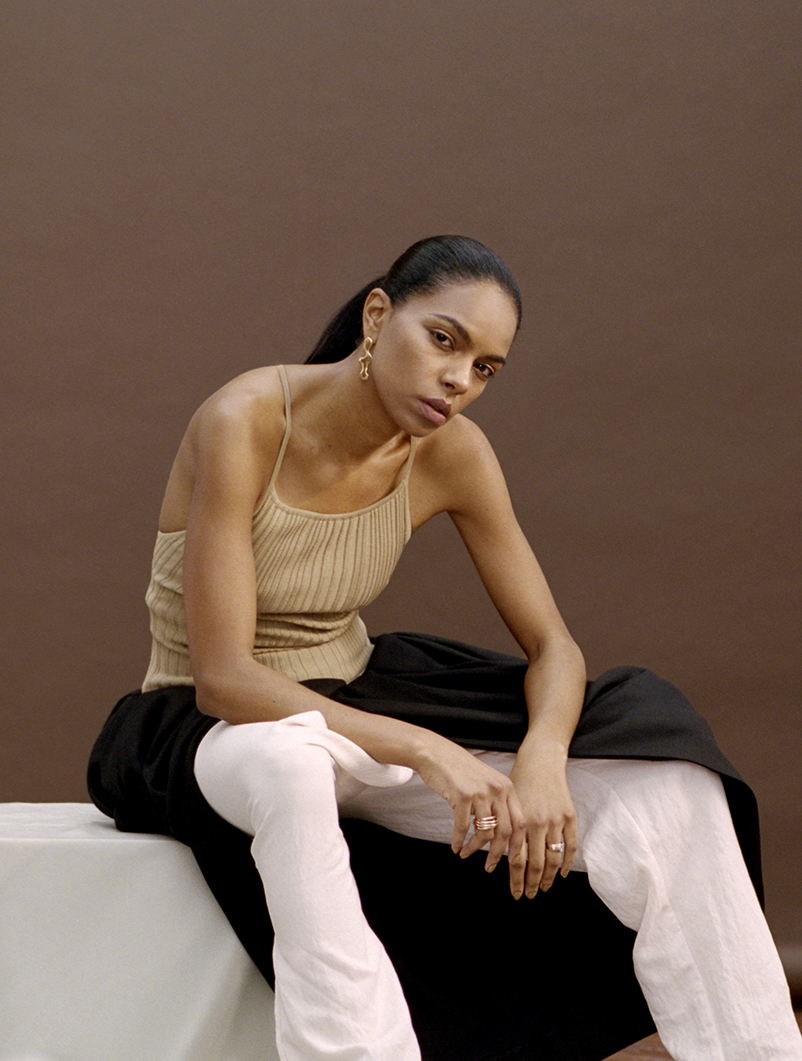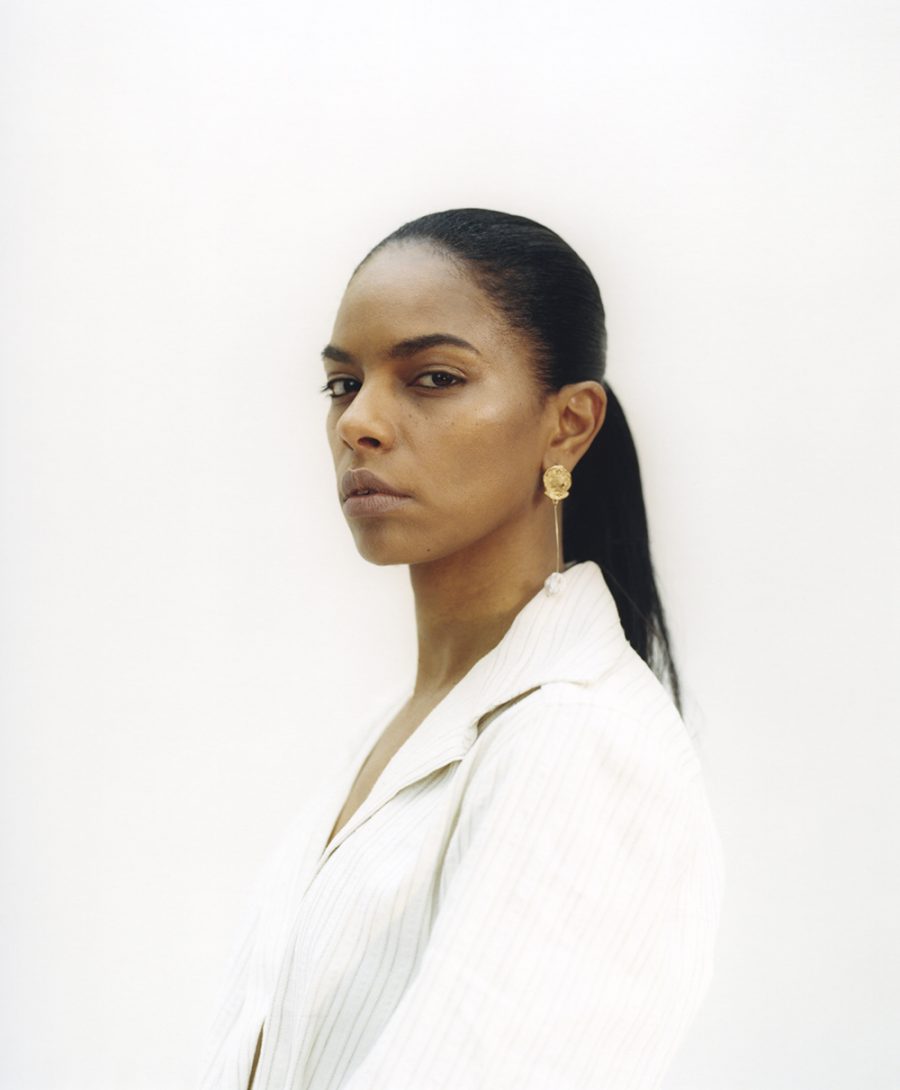Noëlla Coursaris / The Modern Philanthropist
Interview 16.04.18
Photography Jack Johnstone Fashion Direction Simone Konu Rae Words Wase Aguele
Noëlla Coursaris Musunka is a modern day superhero. A model, mother, wife, ambassador for The Global Fund and the founder of Malaika (a foundation which empowers girls and their communities through education), she is one busy woman. Yet, her work extends beyond herself. Through Malaika, she built an accredited school for girls in Kalebuka, a village in the Democratic Republic of Congo, she set up a vibrant community centre there in association with FIFA, and has been responsible for installing nine water wells in the area. She is candid and articulate in a way that’s striking: honest yet never harsh, intelligent but always accessible. She speaks with ease and the calm assertion that giving back, for her, is simply a moral responsibility.
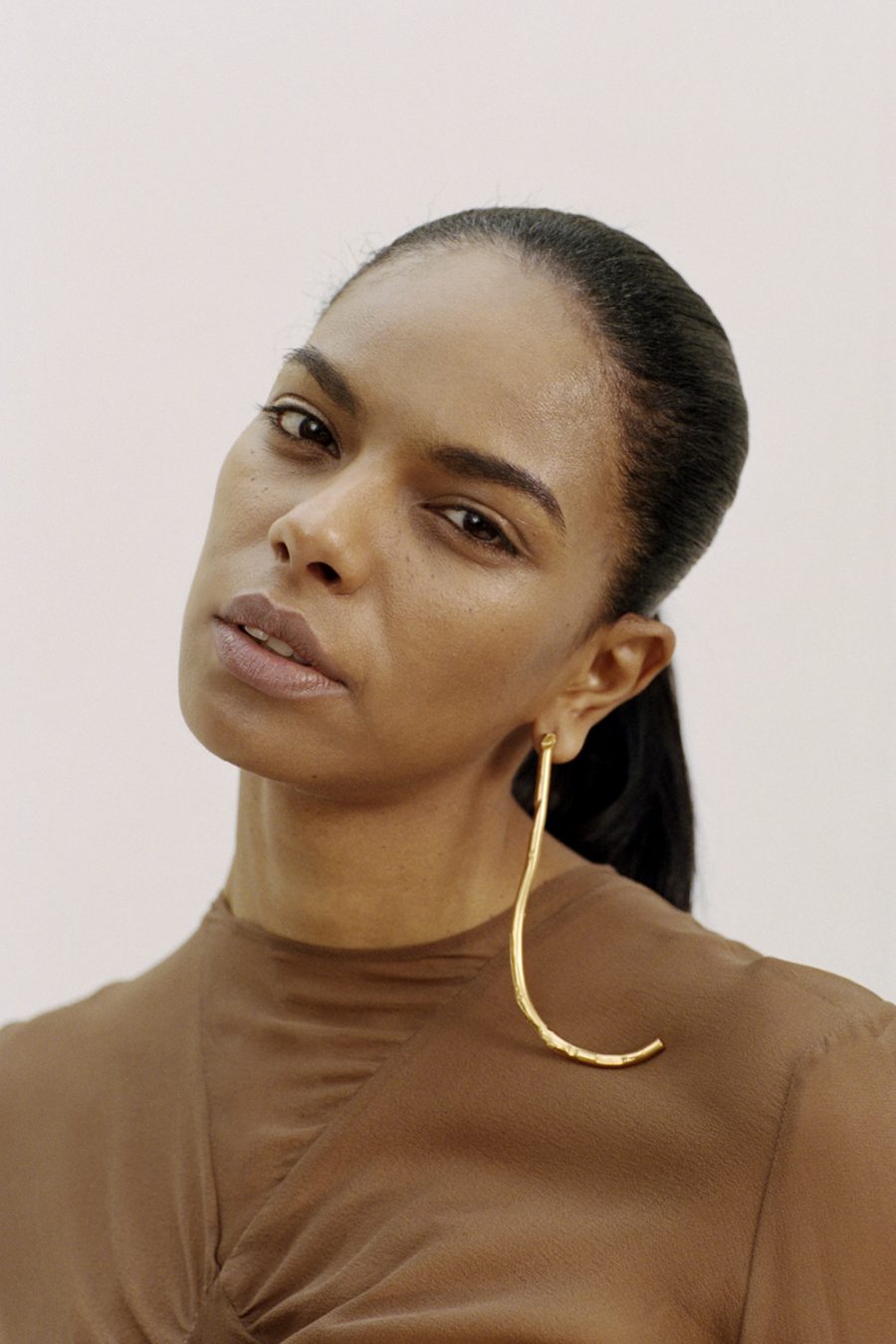
Top by Emma Charles, earring by Alighieri
At five years old, after the death of her father, she was sent from Congo to Europe to live with extended family, as her mother could no longer afford to raise her. She returned to visit her mother for the first time when she was 18. There, Noëlla witnessed the lack of opportunities available to women and girls, and her passion for empowering them through education was galvanised. “If my mother were educated, I believe she would’ve been able to keep me,” she says. “Sometimes in Africa, when there’s a problem in the family, we send our children overseas so they can have better access to education and opportunities. But I don’t think that’s the long term solution–we need strong institutions on the ground.”
Now, Noëlla spends her days juggling her roles as philanthropist, mother and wife: she manages her children’s busy schedules, works with the local team in Kalebuka and the team in New York, and still squeezes in quality time with her husband and kids. Over the phone, Noëlla and I spoke about the power of persistence, giving back and the positive narrative of Africa.
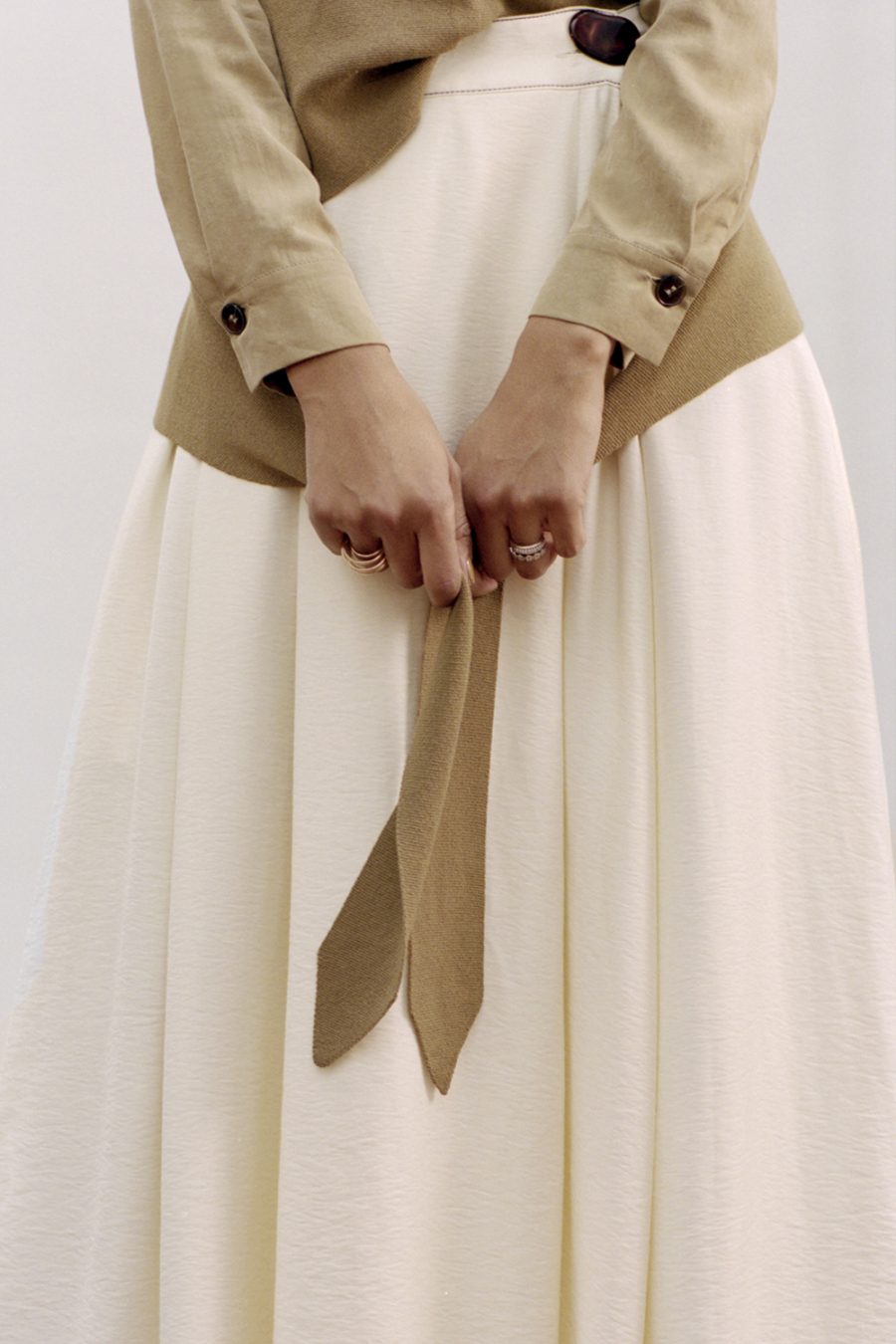
Skirt by Rejina Pyo, shirt and top by Nanushka, rings Noëlla’s own (worn throughout)
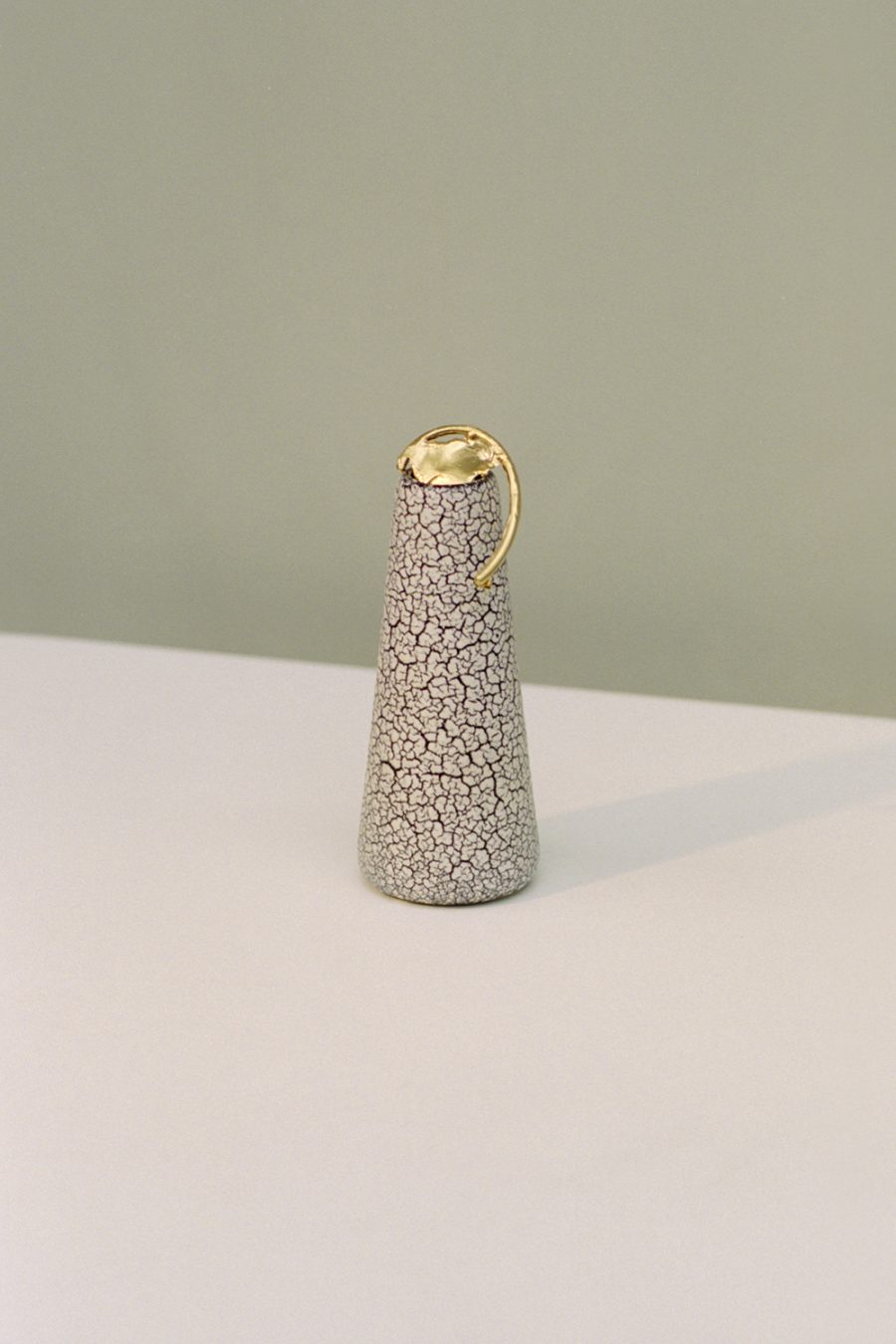
Earring by Alighieri
You’re a mother, a full-time philanthropist, a model, a wife – how do you juggle it all?
Oh my God! I have an agenda for four people – my husband, my daughter, my son and myself. My husband and I have one rule though: one of us is always home so it’s very rare that we travel at the same time. My secret is that I keep to-do lists and I really to try prioritise what I want to do and what’s important for me to achieve. I’ve also had to learn how to say ‘no’. As women, we sometimes get caught up in trying to do a thousand things at once, but sometimes we just have to be able to say ‘no’.
What does a regular day for you look like? What time do you wake up? What do you wear?
I get usually get up between 6a.m. and 7a.m. I get my kids ready, have breakfast with them and drop them off at school. After, I’ll go to the gym or get straight to work. Other times my day can be quite different: I’ll have shoots or speaking engagements or meetings. But when I don’t have to be in front of people, I try to wear stuff that’s relaxed and comfortable with a bit of personality.
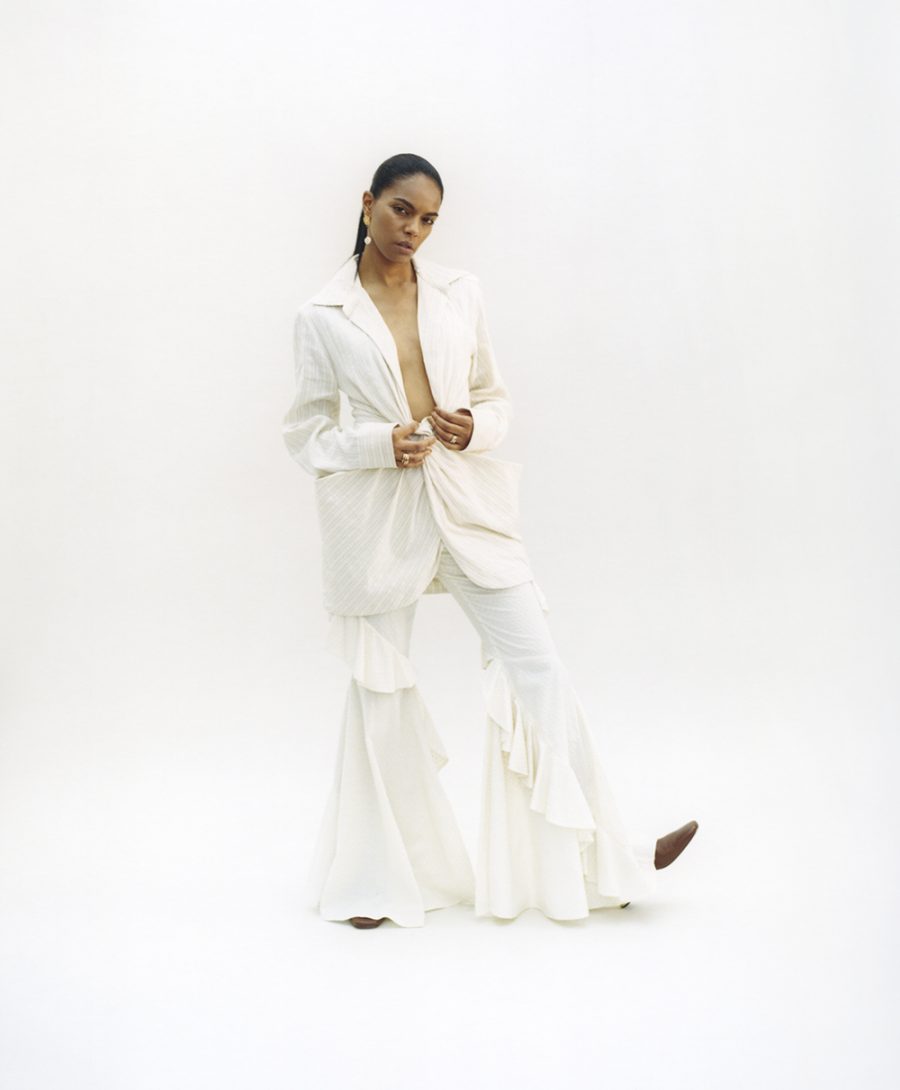
Shirt dress by Jacquemus, trousers by Alistair James, shoes by Loewe
How did the idea for Malaika come about?
Malaika is my giving back to where I’m from. Initially, our program was to sponsor girls who were abandoned on the streets and supply them with school uniforms and supplies. But the more we did, the more we realised there was more to be done. So we decided to build a school in a village where there was no water and electricity, and to provide the girls there with an excellent education that would better their futures and the futures of their families. Now we’ve built nine water wells and counting, a community centre, and we have plans to set up a health facility there in the near future.
I can imagine the initial fundraising to have been a difficult or perhaps even a gruelling experience. What was it like going through that?
Interestingly, the first bit of money we ever raised was from us–the team. I think the secret was, and still is, our transparency. In fact, many of our donors visited the school grounds and spent time with the students and the local team. From there, news of the foundation spread by word of mouth, and our donors have created a community of their own. I also think it’s rare for people to see an African woman at the head of a foundation at this level. Aid can be a business, and I’m proudly doing it and taking no salary from my foundation. We pay the local team but our team in New York is made up of volunteers (except for one member of staff). It’s the transparency of Malaika that I think people value.
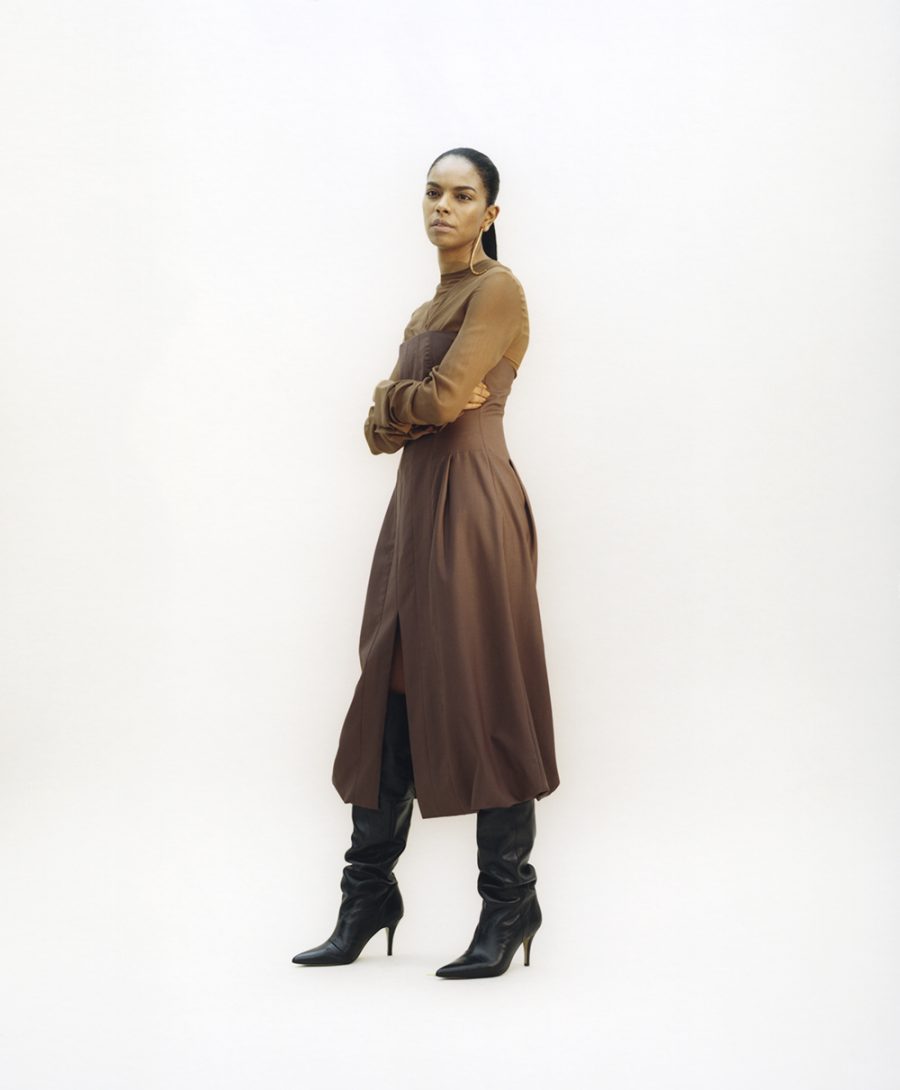
Top and Dress by Emma Charles, earring by Alighieri, boots by Giantvito Rossi
Modelling and philanthropy can be perceived as conflicting. One is perceived to be tied to ‘luxury’ and the other complete selflessness. Do you feel there’s a relationship between the two? Has one informed the other in your particular experience?
Modelling gave me a platform. To be honest, I wasn’t a big fan of it when I used to do it a lot– it was difficult being a black woman in the industry at that time. However, now, every actress and model is associated with a cause. The problem is you aren’t sure who’s genuine. Is it a marketing tool or is it real? For me, Congo is my country and Africa is my continent. It’s deeply personal. So for my team and I, it’s not a PR thing. What’s important is for us to have a bond and a good relationship with the people in Kalebuka.
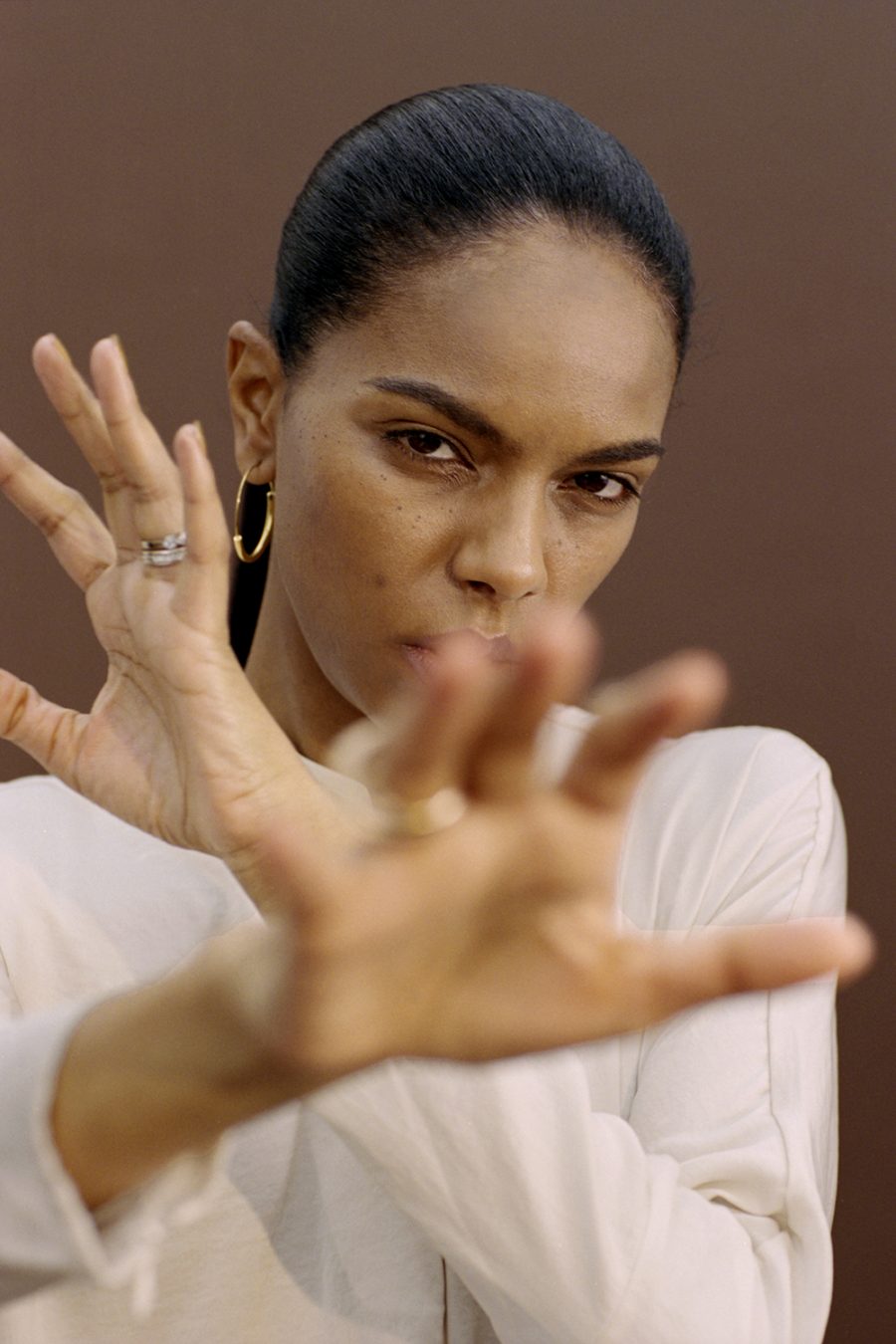
Shirt by Filippa K, earring by Maria Black
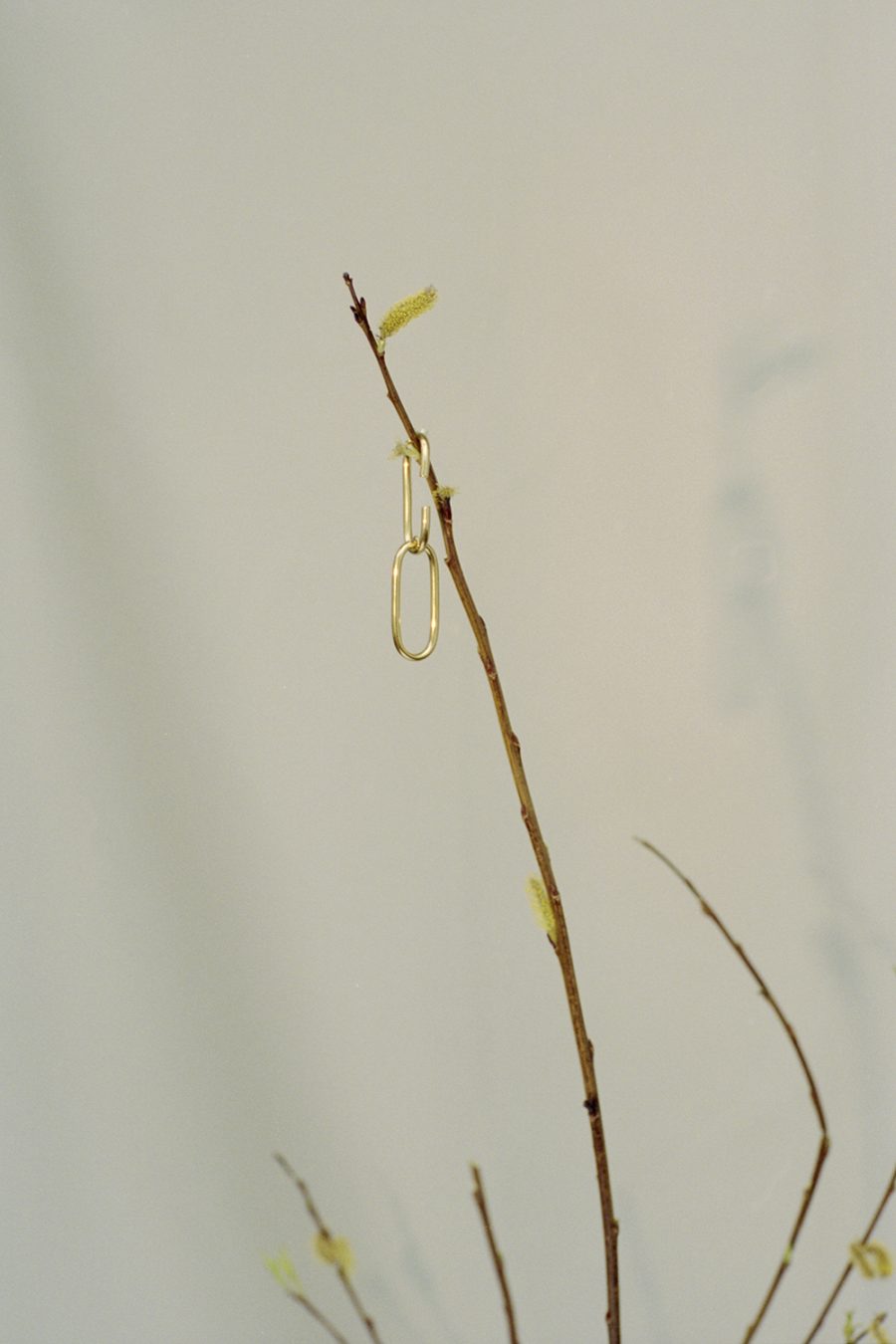
You’ve spoken before about telling the positive narrative/ story of Africa – what is that story?
The positive story is you, is me. It’s the people on the ground who face challenges yet still flourish; it’s the sense of community. If I was raising money for the foundation by saying “there’s war, rape and famine”, I would probably end up raising more. But, early on, I made the decision to spread the positive images and stories of Africa. At certain events, when you hear the way Africa is talked about, it’s not the Africa I want to hear about constantly. There is so much more positivity than is being portrayed, and that’s the story Malaika is dedicated to.
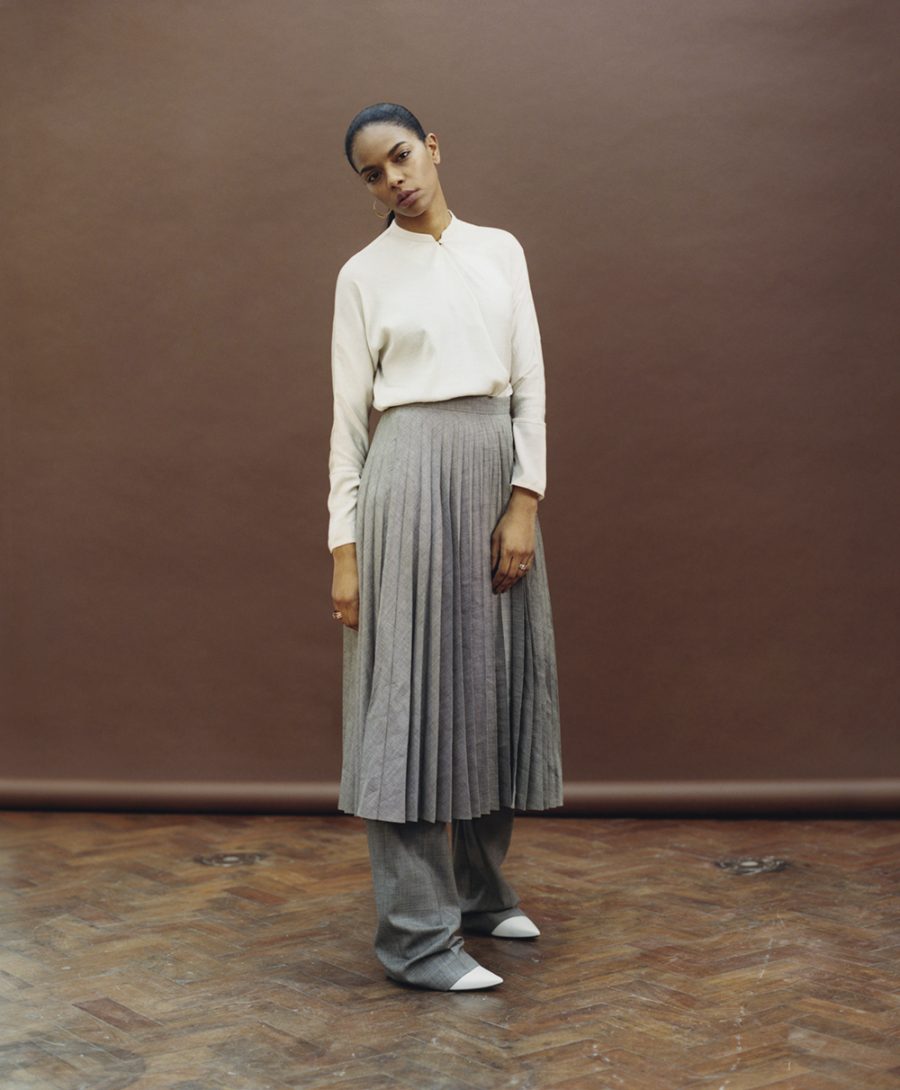
Shirt and trousers by Filippa K, skirt by Margaret Howell, shoes by Tibi earring by Maria Black
How do young Africans like me, living in Europe, give back in the ways we can?
You can mentor one or two people on the ground – I think that’s important. It can be as simple as buying their school supplies, or trying to contribute to their school fees. And if you’re able to visit, whilst you’re there go to orphanages and take whatever you can. When I was 18, I did this too and tried to help in the little ways I could. I see a new young generation of Africans that are vibrant and willing to help, and it’s amazing.
What does downtime look like for you?
Honestly, I love to read a book, watch TV, see friends or have a great dinner. I love food. I’ve also been re-reading The Alchemist by Paulo Coelho; it’s such a great read.
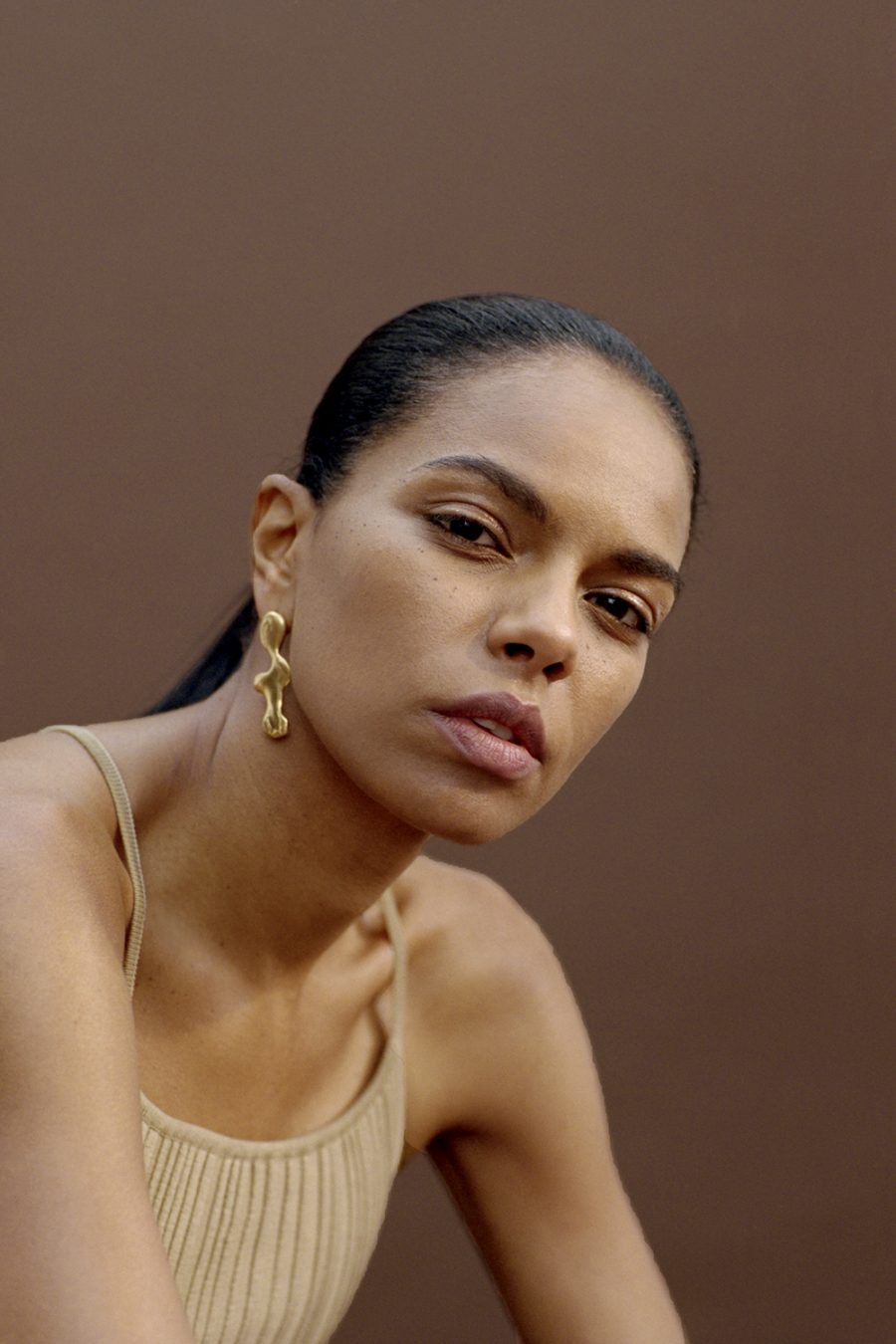
For more information on Noëlla and Malaika visit malaika.org
